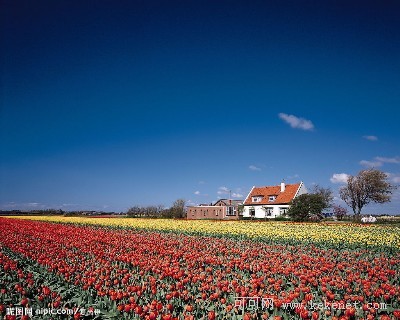
Some time ago, Sofan and I were visiting some friends in the country. We were staying a beautiful little guest cabin, surrounded by fruit trees, flowers and even a few goats. Painted above the doorway in brightly coloured, flowing letters were the words:
Your mind is a garden.
Your thoughts are the seeds.
You can grow flowers or
You can grow weeds...
不久前,我和索芬于鄉(xiāng)間訪友,暫居在一個(gè)給客人住的小木屋里。木屋很是漂亮,四周果樹環(huán)繞,花開遍野,甚至還有幾只山羊在屋旁躑躅。屋門上幾行漆字,顏色鮮亮,字體流暢。寫的是:
心如花園,思想為種。
既得繁花,亦生野稗。
Little did we know it at the time, but this little poem was to have a profound affect both on our thought patterns as well as our Artworks.
當(dāng)時(shí)我們不甚懂得這首小詩(shī),但后來(lái)它卻給我們的思維模式與藝術(shù)作品帶來(lái)了深遠(yuǎn)的影響。
It started almost as a kind of game. We decided to make a real effort to watch our thoughts and see exactly what it was that we were planting in our own “Mind Gardens”. It was difficult at first, but gradually, we began to pay more and more attention to what thoughts were repeatedly flashing across our minds.
剛開始的時(shí)候幾乎就像一場(chǎng)游戲。我們決定下一番真功夫去觀察自己的思想,把我們?cè)谧约骸靶膱@”里種下的東西看個(gè)真切。起初并不容易,但漸漸地,我們開始愈發(fā)關(guān)注在自己心中反復(fù)閃過(guò)的是何種思想。
How disturbing it was to discover that many of these “seeds” were extremely negative thoughts destined to grow patches of thorny thistles and stinging nettles in our daily lives!
當(dāng)發(fā)現(xiàn)大多數(shù)的“思之種子”都是很負(fù)面的思想,注定要在我們的日常生活中長(zhǎng)成一叢叢帶刺的野薊、蕁麻的時(shí)候,這是多么讓人煩惱啊!











